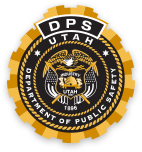Fire Sprinkler Systems
AUTOMATIC FIRE SPRINKLER SYSTEM INSPECTING AND TESTING CERTIFICATION PROGRAM OVERVIEW
The Automatic Fire Sprinkler System Inspecting and Testing Certification program was implemented in March of 2004. All persons engaged in the inspection and testing of automatic fire sprinkler systems must receive a certificate of registration from the State Fire Marshal’s Office. To be registered, a person must pass the applicable examinations and the manipulative skills task books.
The program consists of four levels of certification:
Technician I shall pass a written examination on wet pipe sprinkler systems, antifreeze sprinkler systems, and standpipes, and complete the manipulative skills task book.
Technician II shall pass all the requirements listed for Technician I; pass a written examination on dry pipe sprinkler systems, deluge sprinkler systems, preaction sprinkler systems, combined dry pipe-preaction systems, fire pumps, and water storage tanks, and complete the manipulative skills task book.
Technician III shall pass all the requirements listed for Technician I and II; pass a written examination on water spray fixed systems, foam-water sprinkler systems, and foam-water spray systems, and complete the manipulative skills task book.
Master Technician shall have successfully completed and be certified as NICET III in Inspection and Testing of Water-based Systems, and complete the manipulative skills task book.
All of the examinations are open-book with the majority of information to be found in the following:
NFPA 13 – Installation of Sprinkler Systems
NFPA 14 – Installation of Standpipe & Hose Systems
NFPA 20 – Installation of Stationary Pumps for Fire Protection
NFPA 25 – Inspection, Testing & Maintenance of Water-Based Fire Protection Systems
In addition, the Technician I Examination will have some information to be found in the Utah State Fire Marshal’s Administrative Rules, R710-5. These rules can be found on our website under Laws & Rules
Proof of public liability insurance from the certificate holder or employing concern shall also be provided to the State Fire Marshal’s Office. Additional information can be found in the R710-5 rule, again, available for review on our website.
